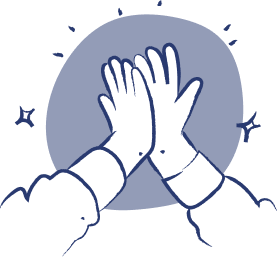Tick-Borne Encephalitis Lived Experience – Dominic’s Story

What if a single day in the woods could change your entire life?
For me, that day came in 1997. I was a vibrant young gardener and landscape designer, full of energy and plans for the future. During a forestry assignment as part of my horticulture studies, I was bitten by three ticks. One of those bites left behind a red ring—erythema migrans—the classic early sign of Lyme disease.
My symptoms followed swiftly: deep fatigue, intense headaches, and muscle pain. At the time, these were all brushed off as “exam stress.” But I knew something wasn’t right. That was the beginning of a decades-long battle against invisible illnesses—and worse, against disbelief from the medical system.
As the years passed, my symptoms worsened. Migraines, irregular heart rhythms, and an unbearable sensitivity to light and sound took over my daily life. I sought medical help, but again and again, I was told it was “psychological.” I was made to feel like I was imagining it all.
By 2005, I had reached my lowest point. Overwhelmed by constant pain and exhaustion, I tried to end my life. What would later be identified as acute neuroborreliosis—a severe neurological complication of Lyme disease—was at the time dismissed as a psychiatric breakdown. I was placed in a psychiatric clinic, where I received treatment that did more harm than good.
It took a chance encounter with a duty GP to change the course of my life. She immediately saw the severity of my condition and arranged for an emergency hospital transfer. There, I finally received the urgent medical care I desperately needed—but still, the underlying cause went undiagnosed. I was returned to the psychiatric clinic, told once again: “it’s all in your head.”
Those were the darkest years of my life. I lost everything—my job, my partner, even my connection with my brother. I became isolated, locked in a body that no longer worked, while fighting for recognition that something physical was terribly wrong.
In 2008, I sought a second opinion at another hospital. At last, I had confirmation: active antibodies to Borrelia burgdorferi, the bacterium that causes Lyme disease, and to the Tick-Borne Encephalitis Virus (TBEV). The diagnoses were clear—neuroborreliosis and Tick-Borne Encephalitis. Conditions, whose after-effects I had unknowingly lived with for years. Unfortunately, by then, the damage was irreversible. The antibiotic treatments came too late to stop permanent neurological injury. I continued to suffer from epileptic seizures, chronic fatigue, and other long-lasting complications. And still, the incorrect psychiatric labels haunted my medical records.
In 2015, a breakthrough finally came. A German physician conducted comprehensive testing and concluded that I had indeed suffered from long-term Lyme disease as well as post-viral sequelae from TBEV encephalitis. For the first time, psychiatric causes were officially ruled out and disproven. That alone was a profound relief—to finally be believed.
With a tailored, intensive treatment plan, I slowly began to regain some quality of life. I am not cured, and likely never will be. The infections left their mark—permanently. But I’m no longer in survival mode. I can walk, cycle, do volunteer work, and engage with others again. And I use my voice to speak out.
Today, I advocate as a board member and patient representative for several organisations focused on tick-borne diseases. I fight for better diagnostics, recognition of chronic forms and after-effects of these illnesses, more humane guidelines, and compassionate care. Not only for myself, but for everyone who is still trapped in the same maze I once was.
My message is simple and urgent: Tick-borne diseases are real. They destroy lives. They deserve serious attention—not disbelief or dismissal. Ticks may be small, but their impact is devastating. Check yourself after every time in nature. And if you’re ever told “it’s all in your head”—don’t give up. You deserve to be heard. I did too.
Story published August 2025
Get help
Our support team are available from 9am to 5pm (GMT), Monday to Thursday, and 9am to 4.30pm (GMT) on Fridays.
To get in touch, simply call +44(0)1653 699599.
Contact our helpline
